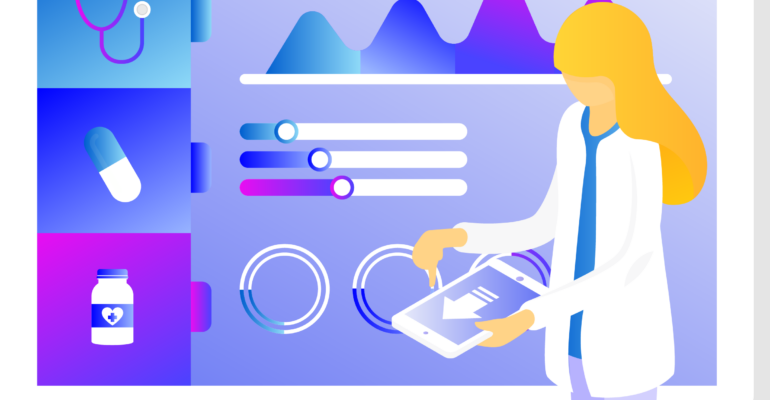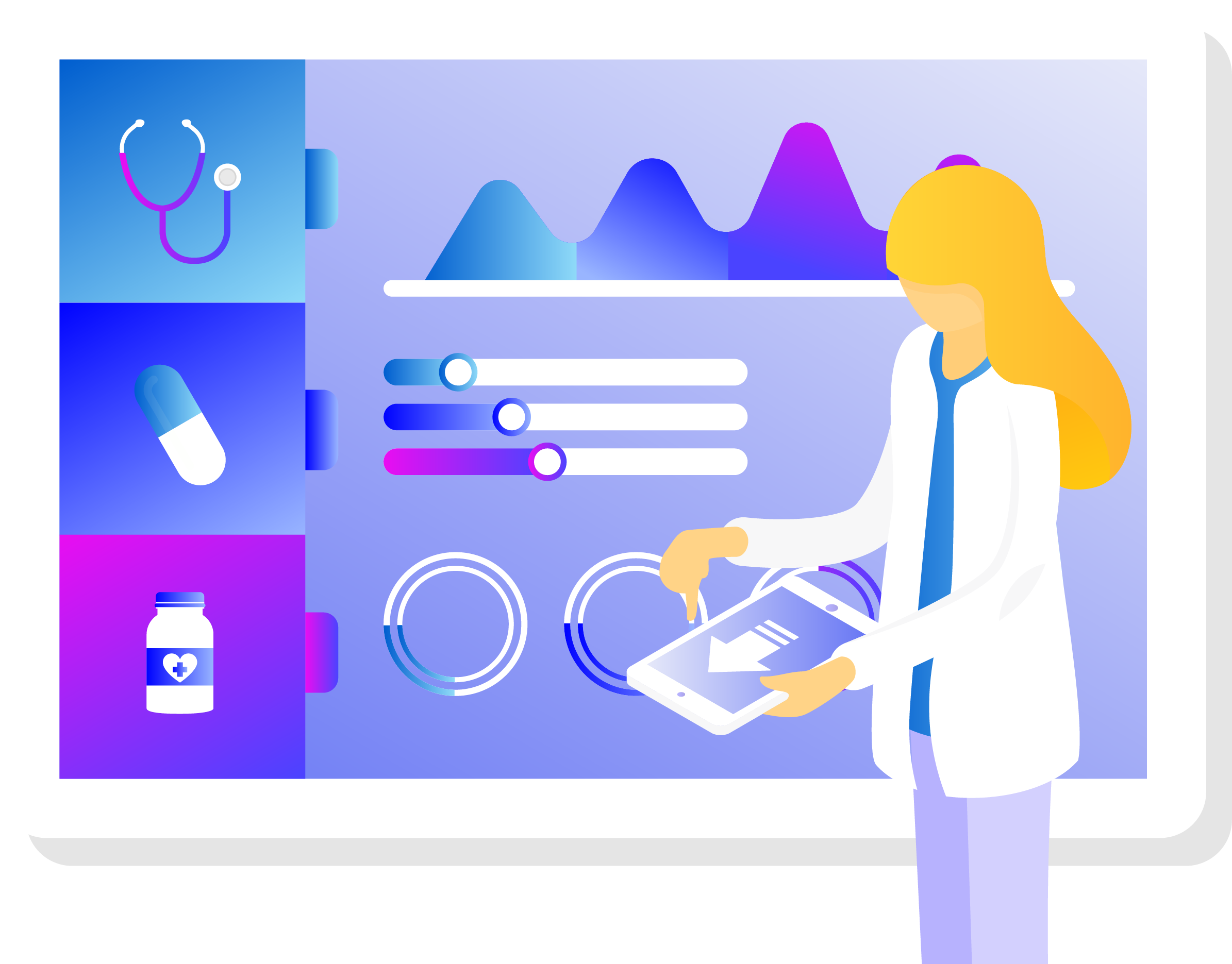
By Alen Alosious
26th Nov, 2024
Top 5 Benefits of Agentic AI-Driven Workflows in the Pharma and Healthcare Industries
The integration of Agentic AI – a form of artificial intelligence with limited autonomy and problem-solving capabilities – has transformed workflows across industries. In pharma and healthcare, these AI-driven agents take on complex operational challenges, automate routine tasks, and enable real-time insights to improve patient outcomes and operational efficiency.
Unlike fully autonomous systems, Agentic AI serves as a dynamic assistant, working collaboratively with human agents to optimize workflows. The value of Agentic AI lies in its ability to enhance decision-making without replacing the human touch, making it a critical innovation for highly regulated and sensitive industries like healthcare.
1. Personalized Patient Engagement
Agentic AI revolutionizes patient engagement by leveraging data to tailor interactions at scale. Whether assisting in care management or responding to patient inquiries, these AI agents provide highly personalized support.
How It Works
Agentic AI analyzes patient data, such as medical history and real-time inputs, to craft tailored communication. Unlike static chatbots, Agentic AI adapts its responses based on context, offering human-like interactions that address patient needs more effectively.
Real-World Example
Hospitals using Salesforce Einstein AI for patient management have seen a 20% improvement in patient satisfaction scores. By utilizing Agentic AI, healthcare providers deliver personalized follow-ups and appointment reminders, reducing patient no-show rates by up to 30%.
Impact
- Improved patient adherence to treatment plans.
- Increased trust in healthcare providers.
- Streamlined communication across multiple touchpoints.
According to McKinsey, personalized healthcare solutions driven by AI improve outcomes for 40% of chronic disease patients.
2. Accelerated Diagnostics and Care Coordination
Healthcare workflows often suffer delays due to fragmented communication between teams. Agentic AI bridges this gap by automating diagnostics and coordinating care plans in real time.
How It Works
Agentic AI integrates with hospital systems to analyze medical data, highlight diagnostic patterns, and recommend next steps. It also facilitates coordination between healthcare professionals by centralizing updates in real time.
Real-World Example
The Cleveland Clinic implemented an AI-driven diagnostic workflow that reduced the time to identify cardiac issues by 25%. With Agentic AI managing diagnostic data, cardiologists could focus on more critical aspects of patient care.
Impact
- Faster diagnostic turnarounds.
- Reduced human errors in care coordination.
- Enhanced collaboration among multi-disciplinary teams.
Accenture projects that AI technologies could save the U.S. healthcare industry $150 billion annually by 2026, largely through workflow optimization.
3. Optimized Clinical Operations
Agentic AI plays a vital role in automating repetitive tasks such as documentation, inventory management, and scheduling, thereby optimizing clinical operations.
How It Works
Through natural language processing (NLP) and predictive analytics, Agentic AI automates administrative workflows like creating clinical notes, managing inventories, and scheduling operating rooms.
Real-World Example
The University of California, San Francisco (UCSF) implemented AI-driven scheduling systems, cutting wait times for surgeries by 15%. Additionally, predictive models optimized staff allocation, reducing overtime costs by 12%.
Impact
- Enhanced operational efficiency.
- Reduced administrative burden on healthcare workers.
- Cost savings across clinical operations.
A Deloitte report highlights that AI adoption in clinical operations leads to a 30% reduction in operational inefficiencies.
4. Smarter Omnichannel Marketing and Patient Outreach
In the pharmaceutical and healthcare industries, marketing is no longer just about reaching healthcare professionals (HCPs) – it’s about engaging patients meaningfully. Agentic AI-driven workflows transform omnichannel marketing strategies by delivering hyper-targeted campaigns.
How It Works
Agentic AI uses predictive analytics to segment audiences and craft personalized campaigns across email, social media, and in-app notifications. These workflows ensure that patients and HCPs receive the right message at the right time.
Real-World Example
Pharma companies like Novartis use Agentic AI to personalize marketing for their drugs. These systems deliver targeted educational content to HCPs based on their prescribing behaviors, improving drug adoption rates.
Impact
- Higher engagement rates from both patients and HCPs.
- Reduced marketing costs due to better audience targeting.
- Improved patient education and adherence to treatments.
McKinsey reports that companies using AI-driven omnichannel marketing achieve a 15% increase in campaign ROI compared to traditional methods.
5. Proactive Risk Management in Healthcare Delivery
Agentic AI enhances risk management by identifying potential issues – such as medication errors, adverse drug reactions, or operational bottlenecks – before they escalate.
How It Works
By continuously analyzing data streams, Agentic AI predicts risks and provides actionable recommendations to mitigate them. It can monitor patient vitals in real time or flag anomalies in supply chain data.
Real-World Example
Mayo Clinic uses AI systems to monitor ICU patients, alerting healthcare teams to deteriorating conditions 48 hours before they become critical. Similarly, pharmaceutical supply chains leverage AI to anticipate and resolve shortages of essential drugs.
Impact
- Reduced adverse events in patient care.
- Greater compliance with healthcare regulations.
- Minimized financial and reputational risks.
According to an AWS report, proactive risk management driven by AI reduces medical errors by 25% and operational downtime by 15%.
The Future of Agentic AI in Pharma and Healthcare
As the healthcare and pharmaceutical industries continue to face challenges ranging from resource constraints to rising patient expectations, Agentic AI offers a clear path forward. Its ability to augment human capabilities, streamline workflows, and deliver measurable results makes it an indispensable tool for the future.
To realize these benefits fully, organizations must;
- Invest in scalable AI platforms.
- Train healthcare professionals to work collaboratively with Agentic AI systems.
- Maintain a strong focus on ethical AI practices, particularly around data privacy.
By embracing Agentic AI, healthcare and pharma organizations can redefine patient care, operational efficiency, and overall outcomes.
The question isn’t whether to adopt Agentic AI – it’s how fast you can leverage it to transform your workflows.

